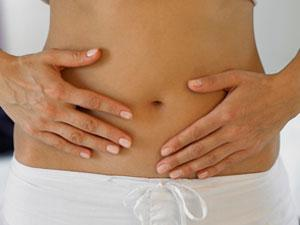
Indian women are increasingly finding themselves falling prey to a reproductory disorder -- here's what you need to know about PCOS.
The most common endocrine disorder in women of reproductive age, polycystic ovary syndrome (PCOS) -- also known as polycystic ovary disease (PCOD) -- causes infertility and other serious health repercussions. In fact, PCOS is believed to be the most commonly found reason for menstrual irregularities in women of reproductive age (12-45 years old). Women can develop PCOS during their teenage or childbearing years.
In India, the incidence of PCOS is on the rise, with research finding nearly 35 percent of women suffer from it -- that is roughly one in three, a rather alarmingly high number.
What is PCOS?
Polycystic ovary syndrome (PCOS), formerly known as the Stein-Levanthal Syndrome, is a condition where at least two of the following occur, and often all three:
- At least 12 follicles (tiny cysts) develop in your ovaries (polycystic means 'many cysts'). Cysts are fluid-filled sacs.
- The balance of hormones that is produced in the ovaries is altered. In particular, your ovaries produce more testosterone (male hormone) than normal.
- You do not ovulate each month. Some women do not ovulate at all. (In PCOS, although the ovaries usually have many follicles, they do not develop fully and so ovulation often does not occur.) If you do not ovulate then you do not have a period.
In PCOS, there are many poorly developed follicles (sacs that contain eggs) within the ovaries. The eggs in these follicles do not mature and, therefore, cannot be released from the ovaries. Instead, they form cysts in the ovary.
What causes PCOS?
The exact cause is not totally clear. Several factors probably play a part. These include the following:
- Insulin: Women with PCOS have what is called 'insulin resistance'. This means that cells in the body are resistant to the effect of a normal level of insulin. More insulin is produced to keep the blood sugar normal. This raised level of insulin in the bloodstream is thought to be the main underlying reason why PCOS develops.
- Luteinising hormone (LH): This hormone is produced in the pituitary gland. It stimulates the ovaries to ovulate and works alongside insulin to promote testosterone production. A high level of LH is found in about 4 in 10 women with PCOS.
- Hereditary factors: Your genetic makeup is probably important. One or more genes may make you more prone to develop PCOS. PCOS is not strictly inherited from parents to children, but it may run in some families.
- Weight: Being overweight or obese is not the underlying cause of PCOS. However, if you are overweight or obese, excess fat can make insulin resistance worse. This may then cause the level of insulin to rise even further. High levels of insulin can contribute to further weight gain.
What are the symptoms?
Teen girls and young women with PCOS commonly exhibit one or more symptoms. Some of the most common ones include:
- Irregular periods that come every few months, not at all, or too frequently.
- Infertility, generally resulting from very occasional ovulation.
- Extra hair growth on the face or other parts of the body (usually found under the chin, on the upper lip, forearms, lower legs and on the abdomen), called hirsutism.
- Acne, oily skin.
- Hair loss, appearing as thinning hair on the top of the head.
- Weight gain and/or trouble losing weight.
- Deepening of voice.
- Patches of dark skin on the back of the neck and other areas, called acanthosis nigricans.
What conditions can be associated with PCOS?
Women with PCOS are at higher risk of a number of illnesses, including high blood pressure, high cholesterol, type 2 diabetes and heart disease. Problems with menstrual periods may also cause infertility (the inability to get pregnant) in women who have PCOS and they may also run a higher risk of cancer of the uterus (endometrial cancer).
What can be done to deal with PCOS?
- A good diet and exercise habits can help with the symptoms of PCOS and they are an important first step in treating this problem.
- A healthy diet includes whole grains, beans, fruit, vegetables and lean protein. Eating a few small meals rather than three big ones may help even out blood sugar levels.
- Exercise can help you lose weight and keep it off. It also helps your body use insulin, so it can lower your diabetes risk. Aim for 30 minutes or more a day of activity, such as brisk walking. Talk to your doctor before you start or increase your activity.
- Weight loss is key in treating PCOS. Losing even 5 percent to 10 percent of your weight can help restart ovulation, lessen your symptoms and lower your risk of diabetes. Diet and exercise can help you lose weight.
- Birth control pills can help regulate your periods and reduce hormone-related symptoms such as acne, hair loss and excess facial and body hair.
- Anti-androgen medication such as spironolactone may be used along with birth control pills. It can help reduce unwanted hair growth and acne. It should not be taken during pregnancy.
- Metformin, a diabetes medication, can help restore ovulation and control your insulin and blood sugar levels. It's often used to help increase fertility in PCOS, and it may be used along with infertility drugs for this purpose. It may also help with weight loss.
While you can't cure PCOS, you can treat it. A healthy lifestyle is very important, including healthy eating and daily exercise. There are excellent long-term medications to help you manage irregular periods, hair growth and acne.






